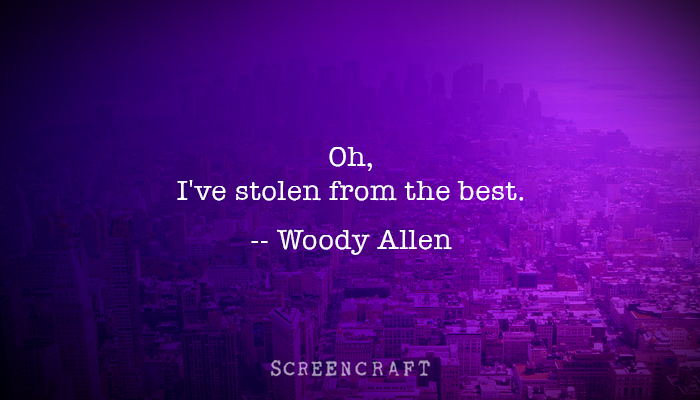
For a writer, the idea of getting notes is fraught with possibilities, some good, some bad. The idea of taking the script you’ve stained with your blood, sweat and tears and turning it over to an executive or consultant is a little like, I would imagine, sending your child off to sleep away camp for the first time. You’re hoping for the best but quite possibly fearing the worst.
Getting notes is never easy, but if you’re confident enough in your work to get some feedback…and believe me, no matter how experienced you are as a writer, with each script you have to work to get to that point…getting notes is always valuable.
Even if you don’t agree with whatever your analyst says, the points that they bring up can help call to your attention the problem areas in your script you may not have seen, and which elements are being interpreted in ways you didn’t intend. Exposing your script to a fresh pair of eyes (and no, your close friends and family don’t count unless your name is Skippy Spielberg) is essential to the development process, if for nothing else so that someone else can confirm that your script is the greatest work of genius in human history.
Notes are a tool. You can use them as you wish. Sure, every analyst has points of bias, even if they’re not aware of them. But take it from me, every development executive wants to nurture great scripts. For anyone who doesn't have firsthand knowledge, giving development notes is sort of akin to doing a jigsaw puzzle...but in reverse. You start with the big picture and study what you see. Then you break it apart into every possible component...theme, plot points, structure, character, dialogue, originality, premise, catharsis, marketability, salability, budget, voice, conflict, pacing, tone, consistency...and then try to put it all back together in a way that helps the writer make an even better picture. It isn't always easy, but it's always rewarding.
You don’t have to agree with any or all notes, and you don’t have to make any or all suggested revisions. But you should be constantly thinking about how you can make your script more effective on every level, and notes can be the key to taking your script to a viable level.
As an example, I had the pleasure of reading accomplished writer Stephen M. Hunt’s World War II drama spec script Precious Vengeance. It was a script with a lot of potential, and I got to provide notes on multiple drafts. Stephen’s script was exposed to multiple readers and analysts, and he diligently absorbed the feedback, took the points he agreed with and made them work for him. He took what he wanted and put in the time to hone his script. Because of his talent and his willingness to do that, his script was selected from over 1,000 entries to win the Grand Prize of the 2012 Fresh Voices Screenplay Competition and is now being actively submitted to producers by chairman Joel Mendoza.
It’s a story that all writers should find encouraging. Story notes matter, but what really matters is what you do with them.
Consider ScreenCraft's professional screenplay development services here.
Get Our Screenwriting Newsletter!
Get weekly writing inspiration delivered to your inbox - including industry news, popular articles, and more!






















